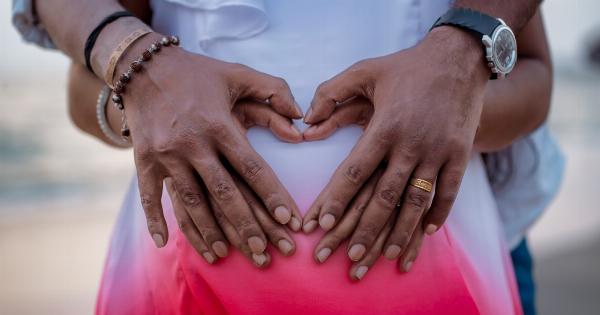Colon cancer, also known as colorectal cancer, is a type of cancer that starts from the colon or rectum of the patient. This type of cancer can occur in anyone, but it’s most commonly found in people over the age of 50.
According to the American Cancer Society, colon cancer is the third most commonly diagnosed cancer in both men and women in the United States.
It’s important to know the early warning signs of colon cancer, as catching it early is crucial to successful treatment. Here are ten early warning signs of colon cancer.
1. Changes in Bowel Habits
If you notice any changes in your bowel habits, such as diarrhea or constipation that persist for more than a few days, it’s essential to see your doctor.
Experiencing sudden urges to defecate or feeling like your bowel isn’t emptying completely could also be a warning sign of colon cancer.
2. Blood in Your Stool
If you see blood in your stool or on the toilet paper after wiping, it’s essential to see your doctor. While it can be difficult to see blood in the stool, it’s critical to be aware of any changes in your bowel movements.
3. Abdominal Pain or Cramping
Colon cancer can cause abdominal pain or cramping, which could be a sign that the cancer is growing and causing a blockage in the colon.
Persistent abdominal pain or cramping, especially when accompanied by gas or bloating, should be evaluated by a doctor.
4. Unexplained Weight Loss
If you’re experiencing unexplained weight loss, you should see your doctor, especially if you’ve lost ten or more pounds without changing your diet or exercise routine.
Unexplained weight loss could be a sign that the colon cancer is growing and spreading to other parts of the body.
5. Fatigue or Weakness
Colon cancer can cause fatigue or weakness, which could be due to blood loss or changes in the metabolism.
If you’ve been experiencing persistent fatigue or weakness, it’s essential to see your doctor to rule out colon cancer or other underlying medical conditions.
6. Iron Deficiency Anemia
Iron deficiency anemia is a condition where there’s a shortage of red blood cells due to a lack of iron in the body. Colon cancer can cause iron deficiency anemia due to bleeding within the colon.
If you’ve been diagnosed with iron deficiency anemia, it’s essential to see your doctor to rule out colon cancer.
7. Nausea and Vomiting
If you’re experiencing persistent nausea and vomiting, it could be a sign of bowel obstruction due to colon cancer. Nausea and vomiting can also be a side effect of chemotherapy or other cancer treatments.
It’s essential to talk to your doctor if you’re experiencing these symptoms to rule out colon cancer or other underlying medical conditions.
8. Changes in Stool Consistency
If you notice changes in the consistency of your stool, such as thinning of the stool or pencil-like stools, it could be a sign of colon cancer.
Changes in stool consistency could be due to a blockage in the colon or rectum, which could be caused by colon cancer.
9. Rectal Bleeding
Rectal bleeding is one of the most common symptoms of colon cancer. If you notice blood in your stool or on the toilet paper after wiping, it’s essential to see your doctor to rule out colon cancer or other underlying medical conditions.
10. Bowel Incontinence
Bowel incontinence is the inability to control your bowel movements, which could be a sign of colon cancer.
Bowel incontinence can also be caused by other medical conditions, such as hemorrhoids or irritable bowel syndrome, but it’s essential to see your doctor to rule out colon cancer or other underlying medical conditions.































